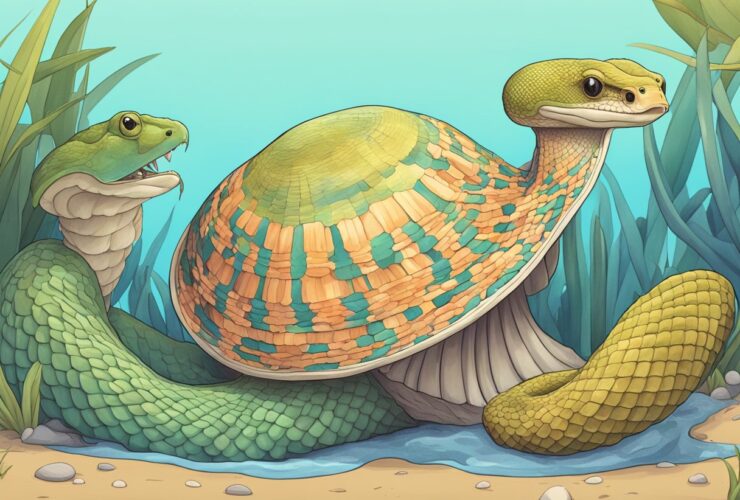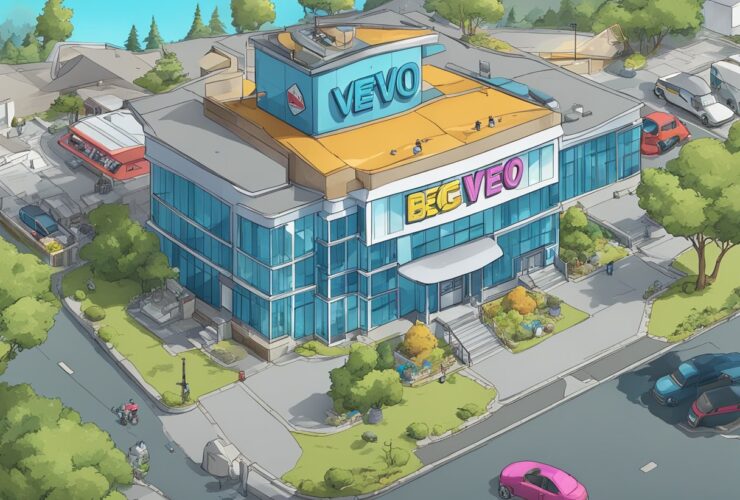Understanding Homophobia; Central Cee’s hit song “Doja” has been making waves on social media, particularly on TikTok, due to its catchy beat and memorable lyrics. One line in particular has sparked discussion and debate: “How can I be homophobic? My b is gay.” This line has caused some confusion and controversy, with many wondering about the meaning behind it and whether it is appropriate or offensive.
Central Cee has addressed the controversy in interviews, explaining that the line is not meant to be offensive or derogatory towards the LGBTQ+ community. Rather, it is a reflection of his personal life and experiences. The rapper has stated that his girlfriend is bisexual, and that he has many LGBTQ+ friends and acquaintances. He has emphasized that he is not homophobic and that the line is simply a reflection of his reality.
Despite Central Cee’s explanation, some have criticized the line for perpetuating harmful stereotypes and for using the term “b” in a derogatory way. Others have defended the line as a reflection of the changing attitudes towards the LGBTQ+ community in the music industry. Regardless of one’s opinion, it is clear that the line has sparked a conversation about homophobia and representation in music.

Understanding the Lyrics
The lyrics of Central Cee’s hit song “Doja” have sparked controversy and confusion among listeners. The line, “How can I be homophobic? My b**** is gay,” has been interpreted in different ways, and some have accused the rapper of perpetuating harmful stereotypes. In this section, we will attempt to shed light on the meaning of the lyrics and explore the context in which they were written.
Firstly, it is important to note that Central Cee has stated that the line is not meant to be taken literally. In an interview with The Independent, he explained that the lyric was a playful way of saying that he is comfortable with his sexuality and does not feel threatened by the sexuality of others. He also clarified that the word “b****” is not meant to be derogatory, but rather a term of endearment he uses for his close friends.
Moreover, the line is part of a larger theme in the song, which is about the rapper’s loyalty to his friends and his willingness to defend them, even in difficult situations. The line is meant to convey that he is accepting of his friend’s sexuality and that it does not affect their bond.
It is also worth noting that the song has been popularized on TikTok, where users have created videos using the line as a humorous punchline. However, some have criticized the trend for trivializing serious issues such as homophobia and perpetuating harmful stereotypes about LGBTQ+ individuals.
In conclusion, the line “How can I be homophobic? My b**** is gay” should not be taken literally and is meant to convey Central Cee’s acceptance of his friend’s sexuality. However, it is important to be mindful of the potential harm that can be caused by perpetuating stereotypes, even in a playful manner.
Interpreting Homophobia
The lyrics “How can I be homophobic? My b is gay” have sparked a lot of discussion and interpretation. Some people may interpret the lyrics as a defense against accusations of homophobia, while others may see it as a way to distance oneself from the LGBTQ+ community.
It is important to note that homophobia is not just about personal beliefs or attitudes towards homosexuality. It can also manifest in discriminatory actions and policies that harm the LGBTQ+ community.
The lyrics may also highlight the complexity of identity and sexuality. While the rapper may not be personally homophobic, his use of the word “b” to refer to his partner may reinforce harmful stereotypes about gay men.
It is crucial to approach discussions of homophobia with nuance and sensitivity. While the lyrics may not be intentionally harmful, they can still perpetuate harmful attitudes towards the LGBTQ+ community. It is important to listen to and center the voices of LGBTQ+ individuals in discussions of homophobia and to work towards creating a more inclusive and accepting society.
Exploring Gay Identity
The lyrics “How can I be homophobic? My b is gay” by Central Cee have sparked a conversation about gay identity and acceptance within the hip-hop community. The line challenges the idea that someone who has close relationships with members of the LGBTQ+ community cannot be homophobic.
Many people who identify as gay struggle with acceptance and discrimination, especially in environments that do not support their identity. The lyrics of “How can I be homophobic? My b is gay” express a level of acceptance and support for the gay community that is not often seen in hip-hop music.
The line also challenges the traditional ideas of masculinity and the role of men in society. It shows that a man can have close relationships with other men without being seen as weak or less masculine. This is an important message for young men who may feel pressured to conform to traditional gender roles.
Overall, the lyrics of “How can I be homophobic? My b is gay” offer a refreshing perspective on gay identity and acceptance. They challenge traditional ideas of masculinity and show that acceptance and support can come from unexpected places.
Analyzing the Song’s Message
Central Cee’s hit song “Doja” gained popularity on TikTok with its opening lyrics, “How can I be homophobic? My b**** is gay.” The song’s message is about love and acceptance, particularly towards the LGBTQ+ community.
The first verse of the song talks about being proud of his girlfriend who is bisexual. He emphasizes that it’s not a phase, trend, or choice, but who she is. This message is important as it challenges the stereotypes and stigmas attached to bisexuality.
The chorus repeats the opening lyrics, “How can I be homophobic? My b**** is gay.” It’s a powerful statement that challenges the idea that being accepting of the LGBTQ+ community is somehow a weakness or flaw. Central Cee is confident in his love for his girlfriend and his support for the LGBTQ+ community.
The second verse of the song talks about how being gay is not a sin or a crime. It’s a message of equality and acceptance, emphasizing that we are all the same and that love knows no boundaries.
Overall, “Doja” sends a powerful message of love and acceptance towards the LGBTQ+ community. It challenges stereotypes and stigmas and promotes equality and understanding. The song’s popularity on TikTok shows that many people resonate with this message and are eager to spread it.
Impact on Society
The lyrics “how can I be homophobic? My b is gay” by Central Cee have sparked a conversation on homophobia in hip-hop and its impact on society. The song gained popularity on TikTok and has been streamed millions of times since its release.
The lyrics have been praised by some for promoting acceptance and inclusivity in a genre of music that has been historically homophobic. Others have criticized the lyrics for trivializing the experiences of LGBTQ+ individuals and perpetuating harmful stereotypes.
Despite the mixed reactions, the lyrics have brought attention to the issue of homophobia in hip-hop and have sparked a conversation about the importance of representation and acceptance in music.
It is important to note that while the lyrics may have a positive impact on some listeners, they do not excuse or erase the harm caused by homophobia in the music industry and society as a whole. It is crucial for artists and individuals to actively work towards creating a more inclusive and accepting environment for all.
Reception and Critique
Central Cee’s hit song “Doja” gained popularity on TikTok, with many users lip syncing to the opening lyrics “How can I be homophobic? My bitch is gay.” The song’s viral success sparked a conversation about the use of homophobic language in rap music and the LGBTQ+ community’s representation in the genre.
While some praised Central Cee for his open-mindedness and acceptance of his girlfriend’s sexuality, others criticized the use of the word “bitch” and the potential harm it could cause to the LGBTQ+ community.
In an interview with Genius, Central Cee explained the meaning behind the lyrics, stating that he is not homophobic and that his girlfriend is bisexual. He acknowledged that homophobia is often embedded in rap culture and that he wanted to challenge that by expressing his acceptance of his girlfriend’s sexuality.
Despite this explanation, some listeners still found the use of the word “bitch” and the casual nature of the lyrics to be problematic. Others argued that Central Cee’s acceptance of his girlfriend’s sexuality does not excuse the use of homophobic language in his music.
Overall, “Doja” sparked a conversation about the use of language in rap music and the representation of the LGBTQ+ community in the genre. While some praised Central Cee for his acceptance, others criticized the lyrics for perpetuating harmful stereotypes and language.
Conclusion
Central Cee’s “Doja” has sparked a conversation about homophobia in rap music. The line “How can I be homophobic? My bitch is gay” has been praised by some for challenging traditional notions of masculinity and sexuality in the genre. Others have criticized the line for perpetuating harmful stereotypes and using a slur.
Central Cee himself has explained that the lyric is not meant to be offensive and is based on his own experiences with his bisexual girlfriend. He has acknowledged that homophobia is a problem in rap music and has stated that he wants to be part of the solution.
The controversy surrounding “Doja” highlights the complex relationship between hip-hop and LGBTQ+ issues. While some artists have been vocal allies of the community, others have been criticized for their use of homophobic language and attitudes. As the genre continues to evolve, it is important for artists and fans alike to examine their own biases and challenge harmful stereotypes.
Ultimately, the impact of “Doja” and other songs like it will be determined by how they are received and interpreted by listeners. As society continues to progress towards greater acceptance of LGBTQ+ individuals, it is likely that attitudes in hip-hop will also shift. Only time will tell how this will play out, but it is clear that the conversation is far from over.
Frequently Asked Questions
How can I support my LGBTQ+ friend?
If you have a friend who identifies as LGBTQ+, the best way to support them is to be there for them and listen to them. It’s important to respect their identity and use their preferred pronouns. You can also attend LGBTQ+ events with them and help create a safe and inclusive environment for them.
What are some common misconceptions about homosexuality?
There are many misconceptions about homosexuality, such as the belief that it is a choice or that it is a mental disorder. It’s important to understand that homosexuality is a natural and normal variation of human sexuality.
How can I educate myself on LGBTQ+ issues?
There are many resources available to educate yourself on LGBTQ+ issues, such as books, documentaries, and online resources. It’s important to seek out reliable sources and listen to the experiences of LGBTQ+ individuals.
What are some ways to be an ally to the LGBTQ+ community?
Being an ally to the LGBTQ+ community means standing up for their rights and advocating for equality. This can include speaking out against discrimination, educating others on LGBTQ+ issues, and supporting LGBTQ+ organizations.
Why is it important to be accepting of all sexual orientations?
It’s important to be accepting of all sexual orientations because everyone deserves to live their life authentically and without discrimination. By accepting all sexual orientations, we create a more inclusive and compassionate society.
How can I help combat homophobia in my community?
You can combat homophobia in your community by speaking out against discrimination and supporting LGBTQ+ individuals and organizations. It’s important to create a safe and inclusive environment for all members of the community.
Related post:
- How to Delete Apps: A Clear and Confident Guide
- How to Lose a Guy in 10 Days: A Foolproof Guide to Driving Him Away
- How to Delete Instagram Account: A Clear and Confident Guide
- How Can I Watch The Good Doctor: A Comprehensive Guide
- How to Interpret and Respond to Homophobic Lyrics in the Context of a Loved One& Sexuality
- Paypal fees calculator uk 2023-Updates
- Solicitors fees for buying a house 2023-Latest









Leave a Reply
View Comments